Contents of the Code of Conduct in Lower Secondary Schools in Vietnam
What are the rules of conduct in lower secondary schools in Vietnam?
Based on Chapter 2 Circular 06/2019/TT-BGDDT, the content of the code of conduct in lower secondary schools is as follows:
(1). General code of conduct
- Strictly follow the legal provisions regarding the rights and obligations of citizens, officials and public employees, teachers, employees, and learners.
- Lead a healthy, active lifestyle, show concern, and help others.
- Protect and maintain the lower secondary school's landscape; build a safe, friendly, green, clean, and beautiful educational environment.
- Managers, teachers must wear courteous and appropriate attire for the educational environment and activities; staff must wear attire suitable for the educational environment and the nature of their work; learners must wear clean, neat clothes suitable for their age and educational activities; students' parents and visitors must wear attire appropriate for the educational environment.
- Do not wear inappropriate attire.
- Do not smoke, use alcohol, prohibited substances in lower secondary schools according to the law; do not participate in social evils.
- Do not use social networks to disseminate, propagate or comment on information or images that are contrary to traditional customs and practices, the Party's line, state policies, or laws, or adversely affect the educational environment.
- Do not cheat, lie, slander, create enmities, harass, coerce, threaten, or bully others.
- Do not harm the health, honor, dignity of oneself, others, or the collective's reputation.
(2). Conduct of lower secondary school managers
- Conduct with learners: Use standard, understandable language; be loving, responsible, tolerant; respect differences, act fairly, listen and encourage learners. Do not insult, coerce, oppress, or abuse.
- Conduct with teachers and staff: Use standard language, show respect, encourage and motivate; be serious, exemplary, and accompany in work; protect the reputation, honor, dignity, and foster the capabilities of teachers and staff; be united, democratic, fair, and transparent. Do not be high-handed, create difficulties, insult, be prejudiced, biased, self-seeking, evade responsibility, hide violations, or blame others.
- Conduct with learners' parents: Use standard language, show respect, support, cooperate, share, and friendliness. Do not insult, create difficulties, or cause inconvenience.
- Conduct with visitors to the lower secondary school: Use standard language, show respect, politeness, and proper decorum. Do not insult, create difficulties, or cause inconvenience.
(3). Conduct of teachers
- Conduct with learners: Use standard, understandable language, appropriate praise or criticism; be exemplary, tolerant, responsible, loving; respect differences, act fairly, counsel, listen and encourage learners; actively prevent school violence, build a safe, healthy, and friendly educational environment. Do not insult, harm, exploit; do not oppress, be prejudiced, abuse, harm; do not be indifferent, evade or hide learners' violations.
- Conduct with managers: Use respectful, honest, willing, positive advice and express clear opinions; follow the directions and tasks assigned by leaders according to regulations. Do not insult, disrupt unity; do not be indifferent, evade or hide managers' violations.
- Conduct with colleagues and staff: Use proper, honest, friendly, willing, sharing, and supportive language; respect differences; protect the reputation, honor, and dignity of colleagues and staff. Do not insult, be indifferent, or disrupt unity.
- Conduct with learners' parents: Use proper, honest, respectful, friendly, cooperative, sharing language. Do not insult or impose or exploit.
(4). Conduct with visitors to the lower secondary school: Use proper, respectful language. Do not insult, create difficulties, or cause inconvenience.
(5). Conduct of staff
- Conduct with learners: Use standard, respectful, responsible, tolerant, helpful language. Do not create difficulties, inconvenience, insult, or use violence.
- Conduct with managers, teachers: Use proper, honest, respectful, cooperative language; comply with the tasks assigned. Do not evade responsibility, insult, disrupt unity, or seek personal gain.
- Conduct with colleagues: Use proper, cooperative, friendly language. Do not insult, disrupt unity, or evade responsibility.
- Conduct with learners' parents and visitors to the lower secondary school: Use proper, respectful language. Do not insult, create difficulties, or cause inconvenience.
(6). Conduct of learners in lower secondary schools
- Conduct with managers, teachers, and staff: Respect, be polite, honest, share, comply with regulations. Do not fabricate information; do not insult the spirit, honor, dignity, or use violence.
- Conduct with other learners: Use proper, friendly, honest, cooperative language, help, and respect differences. Do not curse, offend, insult, disrupt unity; do not fabricate or incite; do not spread information to defame, harm the honor, and dignity of other learners.
- Conduct with parents and loved ones: Respect, be polite, honest, and loving.
- Conduct with visitors to the lower secondary school: Be respectful and polite.
(7). Conduct of learners' parents
- Conduct with learners: Use proper, respectful, sharing, encouraging, friendly, and loving language. Do not insult or use violence.
- Conduct with managers, teachers, and staff: Show respect, responsibility, cooperation, and sharing. Do not fabricate information; do not insult the spirit, honor, or dignity.
(8). Conduct of visitors to the lower secondary school
- Conduct with learners: Use proper, respectful, friendly language. Do not insult or use violence.
- Conduct with managers, teachers, and staff: Be proper, respectful. Do not fabricate information. Do not insult the spirit, honor, or dignity.
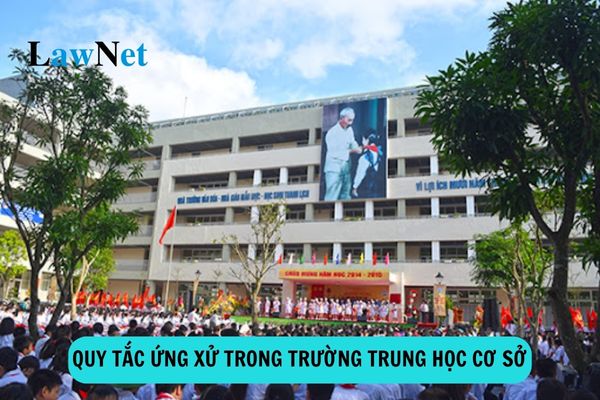
Contents of the Code of Conduct in Lower Secondary Schools in Vietnam (Image from the Internet)
What are responsibilities of lower secondary schools in Vietnam in issuing the Code of Conduct?
Based on Article 13 Circular 06/2019/TT-BGDDT, the responsibilities of lower secondary schools in issuing the Code of Conduct are as follows:
- Based on the provisions of Circular 06/2019/TT-BGDDT, the head of the lower secondary school is to specifically define the Code of Conduct for implementation within the school.
- Publicly display the Code of Conduct in the lower secondary school on the school's electronic information page or post it on the school's bulletin board; continuously propagate and enforce the Code of Conduct among managers, teachers, staff, learners, and related organizations and individuals.
- Organize implementation, evaluation, modification, supplementation, completion, and summary, and report the results of the implementation of the Code of Conduct to the direct management level annually.
- Conduct rewards and disciplinary actions for individuals and collectives in implementing the Code of Conduct according to regulations.
What are purposes of building the Code of Conduct in lower secondary schools in Vietnam?
Based on Article 2 Circular 06/2019/TT-BGDDT, the purposes of developing the Code of Conduct in lower secondary schools are:
- Adjust the conduct of members in the lower secondary school according to social ethical standards and national traditions, suitable with local culture and the actual conditions of the lower secondary school; promptly and effectively prevent and handle negative behaviors, lacking educational values in the lower secondary school.
- Build school culture; ensure a safe, healthy, and friendly educational environment and prevent school violence.

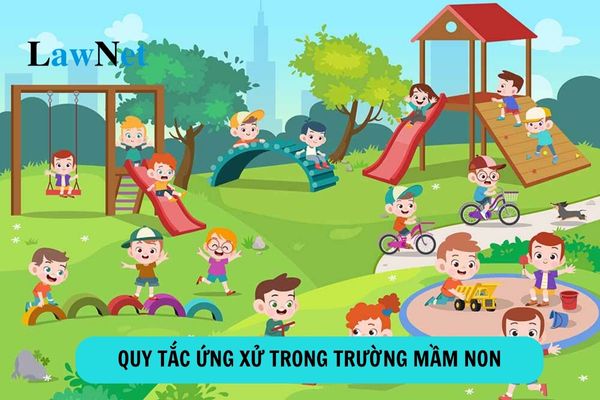
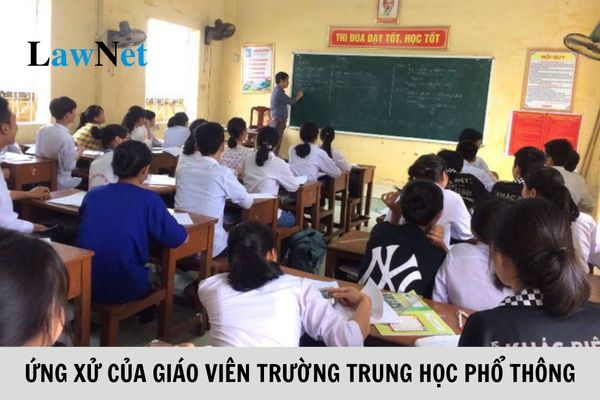
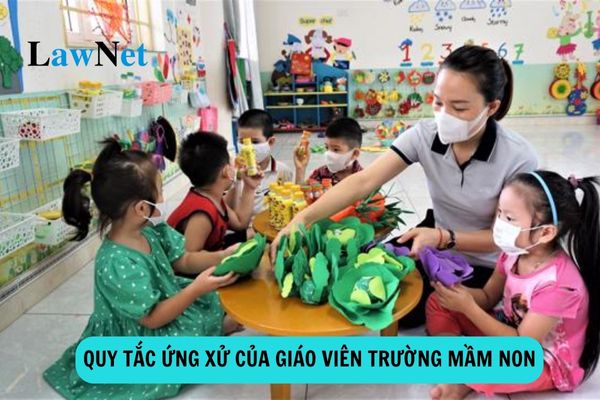
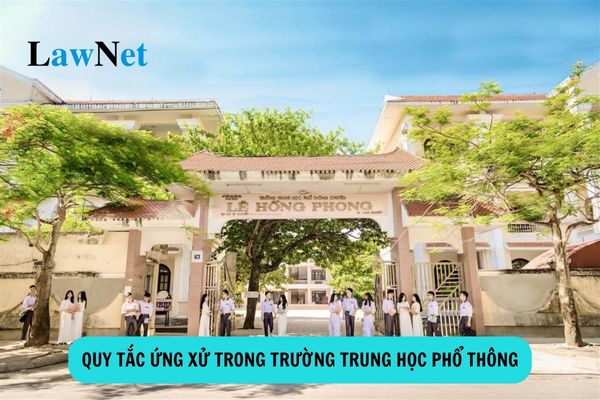
- What are the sample essays on sharing an experience with a family member for 6th-grade students in Vietnam? What elective subjects do 6th-grade students learn?
- Vietnam: What is Polymer? What is the grade at which the Chemistry curriculum covers Polymer?
- Vietnam: What are the sample social argumentative essays on artificial intelligence? What is the grade at which students initially write social argumentative essays?
- Vietnam: What are the sample discussions on students being late for school? What are the criteria for text corpus used in the 9th-grade Literature curriculum?
- Vietnam: When was the directive on national resistance given? What education level does 9th Grade fall under?
- Vietnam: What is the overview of industrial revolutions over periods in the 10th-grade History curriculum? What knowledge about industrial revolutions do 10th-grade students learn?
- What is the Plan for organizing professional training for English teachers in Ho Chi Minh City about?
- Vietnam: What are the sample outlines of a social argumentative essay on kindness for 9th-grade students? What are the kindness qualities required for 9th-grade students?
- Vietnam: What are the sample argumentative essays on respecting people's differences for 11th-grade students? What are the conditions for 11th-grade students to be eligible for grade advancement?
- Are students pursuing dance in Vietnam eligible for tuition reduction?

